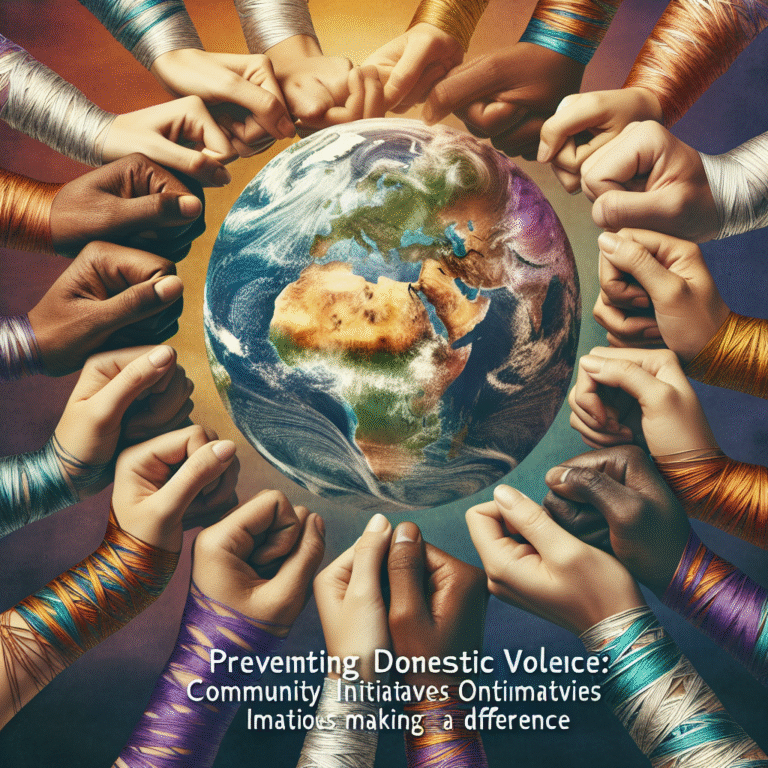
Introduction
In a world where genetic science is advancing at an unprecedented pace, understanding our DNA has never been more crucial. The phrase "Unraveling the Blueprint: How Genetic Influences Shape Our Lives" echoes the mystery and potential of our genetic makeup. From determining our physical traits to influencing our predispositions toward certain diseases, our genes play an undeniable role in shaping who we are.
Imagine a future where you not only understand your genetic predispositions but can actively leverage this information to enhance your life. In this article, we will take a deep dive into how genetic influences shape our lives, exploring their impact on health, behavior, and even our emotional well-being.
The Genetic Foundation: Understanding DNA
The Basics of DNA
At the core of our being lies DNA, the double helix structure composed of nucleotides. Each person’s DNA contains approximately 3 billion base pairs and holds the genetic instructions for development, functioning, growth, and reproduction. The unraveling of this complex structure serves as a critical framework in our journey of understanding identity.
Genes vs. Environment: The Ongoing Debate
One of the most pivotal discussions in genetics is the age-old nature vs. nurture debate. While genetics provide the blueprints, environmental factors play a significant role in how those blueprints manifest in reality. Research suggests that although our genes lay the foundation, the environment can enhance or inhibit various traits, leading us to the concept of gene-environment interactions.
The Influence of Genetics on Health
Genetic Predisposition to Diseases
Understanding how genes influence our health can lead to earlier diagnoses and personalized treatment plans. For example, BRCA genes are linked to an increased risk of breast and ovarian cancers. Women who carry mutations in these genes can make informed decisions regarding preventive measures.
Case Study: BRCA Gene and Breast Cancer
Analysis: A family history of breast cancer heightened the urgency for genetic testing among women in the family. After discovering a BRCA mutation, many opted for preventive surgeries, drastically reducing their cancer risk. This case exemplifies how unraveling the blueprint of genetics aids in combating health issues.
Pharmacogenomics: Tailoring Treatments
Pharmacogenomics studies how genes affect a person’s response to drugs. This emerging field represents a new frontier in personalized medicine, where treatments are tailored based on genetic profiles.
| Drug Name | Genetic Marker | Implications |
|---|---|---|
| Warfarin | CYP2C9, VKORC1 | Adjusted doses can prevent clotting |
| Clopidogrel | CYP2C19 | Alternative treatments for poor responders |
| Abacavir | HLA-B*5701 | Testing prevents severe reactions |
Emotional and Mental Health
Genetics also plays a role in mental health. For instance, heritability estimates suggest that conditions like bipolar disorder and schizophrenia have significant genetic components.
Case Study: Genetic Links to Depression
Analysis: Family studies on depression have revealed patterns indicating a genetic predisposition. By identifying these patterns, mental health professionals can create preventive strategies and potential interventions earlier.
Behavioral Genetics: The Influence on Personality
Traits and Tendencies
Our genes affect various personality traits, such as extroversion, agreeableness, and even risk-taking behavior. Research in behavioral genetics shows that while no single gene determines personality, certain alleles can influence predispositions.
| Trait | Genetic Variation |
|---|---|
| Extroversion | 5-HTTLPR variant |
| Conscientiousness | DRD2 receptor variants |
| Novelty Seeking | COMT gene variants |
Nature vs. Nurture Revisited
Interestingly, research suggests that the interaction between our genetic background and our upbringing can dictate our tendencies. For example, extroverted children may thrive in supportive environments that encourage social interaction.
Unraveling the Blueprint in Developmental Psychology
The Role of Genetics in Development
From birth, our genetic code influences not only our physical attributes but also our temperament and health outcomes. Early intervention programs can significantly benefit children identified as at-risk due to their genetic backgrounds.
Case Study: Early Intervention in Autism
Analysis: Children with genetic markers associated with autism may undergo early interventions, which can lead to significant improvements in communication and social skills. Recognizing these genetic indicators allows for timely support that enhances developmental outcomes.
The Future: Genetic Mapping and Society
The Rise of Genetic Mapping
With technologies like CRISPR and advancements in genome sequencing, the potential for genetic mapping is becoming a reality. The implications of these technologies range from disease prevention to enhancing human capabilities.
Ethical Considerations
As we progress in unraveling the blueprint of our genetic influences, ethical dilemmas arise. Issues like genetic discrimination, privacy concerns, and the potential for “designer babies” warrant careful consideration and public discourse.
Conclusion
Unraveling the blueprint of our genetics is more than a scientific endeavor; it’s a journey of discovery that impacts our health, behavior, and society at large. As we understand how genetic influences shape our lives, we empower ourselves with knowledge that can improve our overall well-being. Embrace the potential of genetic insights to enrich your life, while also acknowledging the intricate relationship between our genes and environment. Ultimately, this understanding not only illuminates our personal paths but also paves the way for a future where health and happiness are within reach.
FAQs
1. What is genetic predisposition?
Genetic predisposition refers to the increased likelihood of developing certain traits or diseases based on genetic factors.
2. Can lifestyle choices affect genetic expression?
Yes, lifestyle factors such as diet, exercise, and stress management can influence how genes are expressed.
3. Are genetic tests safe and reliable?
Most genetic tests are safe; however, their reliability can vary based on the testing technology and the condition being tested for. It’s essential to consult with healthcare professionals when considering genetic testing.
4. Can genetic information be used against me?
Genetic discrimination can occur, but laws like the Genetic Information Nondiscrimination Act (GINA) offer protections against discrimination in health insurance and employment.
5. How can I learn more about my genetic health?
Consulting a healthcare provider or genetic counselor can provide guidance on available genetic testing options and their implications for your health.
By unraveling the blueprint of our genetics, we can better understand and navigate the complexities of life while embracing the power of our individual paths.


















